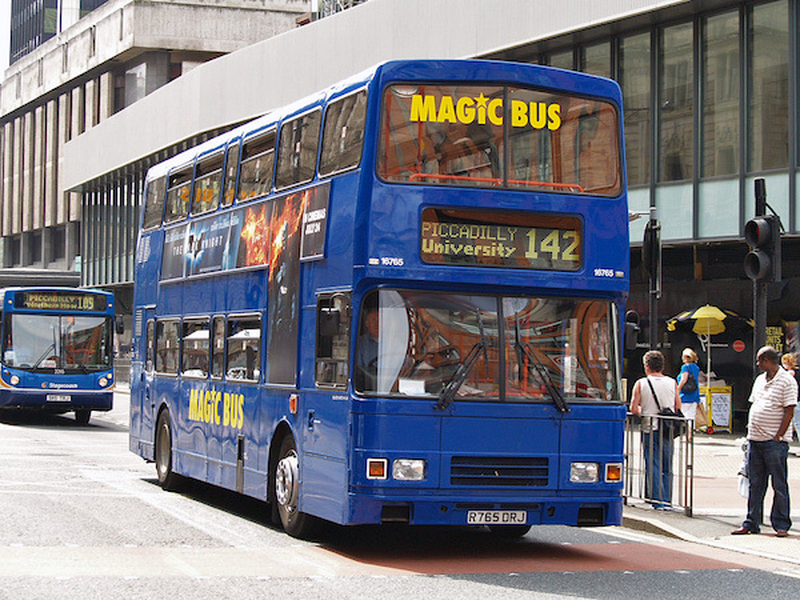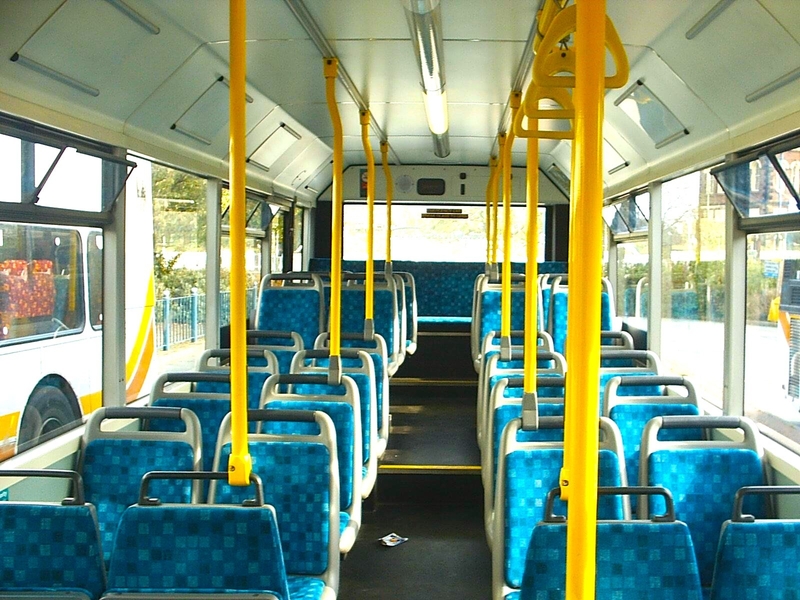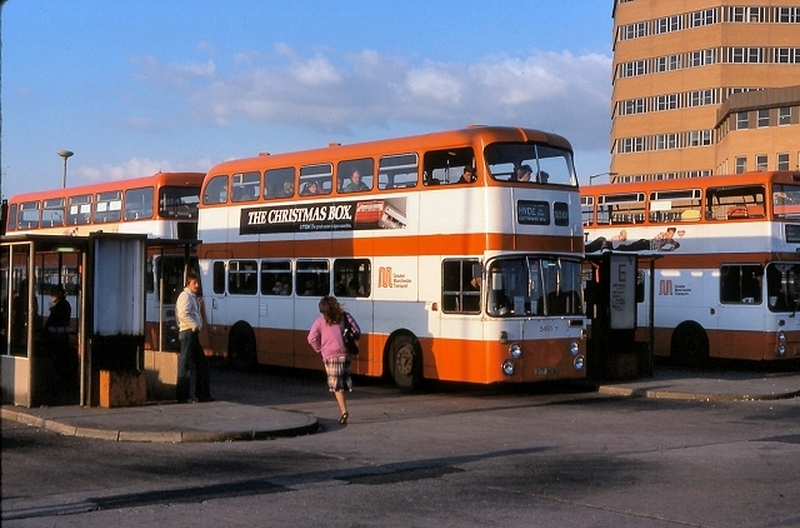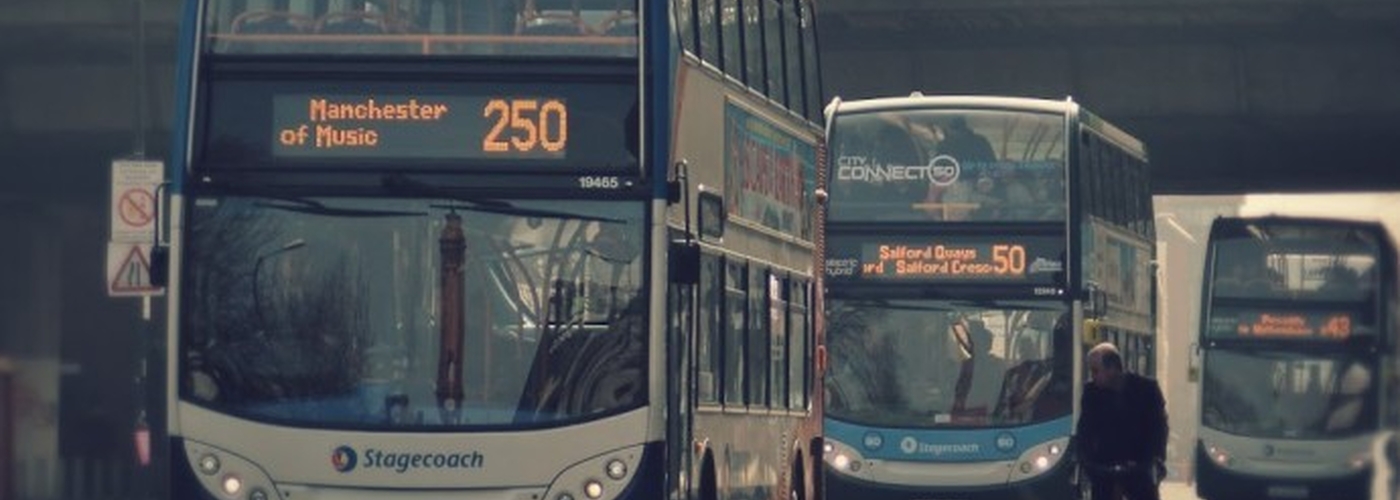But will franchising sort out local transport?
Andy Burnham has made the decision to take control of buses in the largest overhaul to Greater Manchester’s transport network in over 30 years. Bringing buses into local control will be the biggest change to Greater Manchester’s buses since de-regulation in 1986.
The Mayor has promised to deliver an integrated public transport service, where tickets and passes can be used across bus operators. The service will come under the control of the GMCA, which would be responsible for setting routes, timetables, fares, and working conditions for employees.
You will be able to use your tickets on all Greater Manchester buses and hop on and hop off
According to a report by Andrea Sandor: "Although the overwhelming majority of public transport journeys are made by bus (79%), we have a wild west of sorts in the North West with around 22 bus companies running 440 services and 140 different types of tickets - all this without any oversight."
Currently passengers and the people they elect to represent them have little or no say over how buses run because private companies decide where and when to run bus services. Burnham's decision will change that.
Franchising means the deregulated bus market is suspended and bus companies are only able to provide services under contract to TfGM. The Bus Services Act 2017 allowed metro mayors in areas outside of London to create their own franchises for the first time. It is estimated that TfGM spent £20 million and two years coming up with the business case for franchising, in compliance with the Act’s requirements.

What will change with the new bus situation in Manchester?
Mr Burnham said: “Public transport is essential for any successful city-region, and our buses are the backbone of Greater Manchester’s transport network. As Greater Manchester recovers from the pandemic and grows in the future, we must develop our public transport network, alongside walking and cycling, to support the increasing number of journeys we will all be making.
“In Greater Manchester, we’ve always done things differently and been trailblazers especially in the field of transport; we had the first passenger railway; the first ‘bus’ route with a horse-drawn carriage and now I’ve decided that we will be the first outside London to run our buses differently – under local control so that decisions are made at a local level for the benefit of our passengers.
Talking to the press at Ashton-under-Lyne Interchange, Mr Burnham also commented: "It will mean simpler fares and ticketing. You will be able to use your tickets on all Greater Manchester buses and hop on and hop off. You will know how much your tickets will cost."
Apart from simpler fares and joined up ticketing, supporters of the move point to a wider reach of timetables and more reliable services to give passengers the confidence to ditch the commute by car. This, in turn, will benefit the economy as the workforce is able to move around more, and leads to cleaner air. This will have knock-on health benefits which save the NHS money. Indeed, it is estimated that a reliable local public transport service helps councils achieve about two-thirds of their policy aims. The move has been long campaigned for by several different groups such as Better Buses for GM.
Manchester. The Future. 🚌 pic.twitter.com/IW3k9wsZMj
— Justin Moorhouse (@justinmoorhouse) March 25, 2021
Buses are a political issue
In 2019, buses accounted for 56% of public transport journeys by those living in England outside London, or an average 5.8 million passenger journeys each day. Bus use is particularly common for people aged from 17 to 20 and over 70, and for women and girls, most ethnic minority groups, and people on lower incomes, so making sure we have a decent, reliable bus service is a matter of social justice.
According to Dr Ian Bruff of the University of Manchester: “The current system clearly favours profitable commuter routes and not routes that connect communities and make sure all parts of Greater Manchester are well served. This will always disproportionately affect the poor, those who work unsociable hours (e.g. hospital workers, cleaners), and those who live more socio-economically deprived areas.”
The bus service in the UK was singled out by the UN Special Rapporteur Professor Philip Alston when he said, “Abandoning people to the private market in relation to a service that affects every dimension of their basic well-being is incompatible with human rights requirements.”
Bus franchising was supported by nine out of 10 of the councils that make up the GMCA. Only the Conservative-led Bolton Council opposed the move. The leader of Bolton Council said the main concern was over how the move would be funded.

Profits before passengers?
Bus fares have gone up 55% in the last ten years, far outstripping pay growth. In that time, the top bus firms have paid shareholders £1.5billion in dividends, all while services have been axed.
Announcing the franchising move, Mr Burnham commented: “On Oxford Road, you have one bus after another, and then you have estates where there is nothing at all.”
Under the current deregulated system, if a route is not profitable, or even only slightly profitable, a bus company can axe it, while the bus companies can compete along the most profitable routes - hence the many different buses plying trade up and down the Oxford Road corridor, where students provide a reliable source of income.
However, taxpayers should be wary of what a move to a London-style bus network actually means financially. The London Bus network is subsidised heavily, especially when the profit from tube fares is taken into account. In 2018, Transport for London ran at £742 million deficit, largely due to the £722 million loss made by the bus network. Luckily, the profits from the Tube made up a large amount of the shortfall. While the Metrolink does make a profit, it reinvests much of the revenue back into infrastructure projects such as the new Trafford line, which has cost around £350 million, so cannot be relied upon to shoulder the costs of a bus network. There will still be pressure to make the service cost-efficient or it will require further investment from the taxpayer.
That said, even under the private, free-market system, Greater Manchester taxpayers already subsidise the bus service to the tune of millions. This way, argue campaigners, profits can be reinvested back into the services rather than to shareholders.
Bus franchising, unsurprisingly, has been rigorously opposed by the bus companies. Many banded together under the One Bus group to put forward proposals to work together and provide a more integrated bus network while still retaining control of the service.
Stagecoach, one of Manchester's main bus operators, criticised the decision to proceed with a bus franchising plan, saying Mr Burnham should wait for the outcome of a judicial review process.
The bus company said it was "disappointed and surprised" by the decision as the review is not happening until May 27 and 28. The legal challenge was issued by Stagecoach in order to block the franchising process.
"While we await the decision of the court, we remain ready to work collaboratively with the mayor and the combined authority," Stagecoach said.
Not every bus company opposes the move, however. Dai Powell, the CEO of HCT, tweeted: "Hopefully the first authority of many, it has taken too long but now at last passengers and potential passengers will be put first."
We are bringing our buses back under public control and this brilliant animation from @OfficialTfGM explains why 👇🏻pic.twitter.com/ardzVBgNT3
— Andy Burnham (@AndyBurnhamGM) March 26, 2021
So when is it happening and how much will it cost?
The new system will be introduced in a phased approach, beginning in Bolton and Wigan in January 2023, before being rolled out across the rest of Greater Manchester from early 2025. Buses will appear in a new Manchester livery which is yet to be decided.
The cost of the move has been estimated by GMCA to be up to £135 million. Around £78 million of that money is already supplied by a devolution agreement with the Government. Further funding will come through the mayoral precept paid by GM taxpayers, which will raise £33.7m. Local authorities will also put forward £17.8m, with the remainder made up by business rates income.
Mr Burnham said, “We can’t rule out that we might have to put more money into the system, but we hope that we won’t have to.”
He has also assured bus drivers that pay rates and working conditions are secure. The mayor was vocal in his criticism of the "fire and rehire" policies at Go North West, which led bus drivers to strike earlier this month.
The decision to implement bus franchising in Greater Manchester comes after extensive public consultation over 20 weeks. You can find all the reports summarising and setting out the response to the consultation on the GMCA website.

Read next: Marcus Rashford mural causes Trafford Council controversy
Read again: Rail Fail - Northern Rail loses franchise
Franchising roll-out
Franchising will be introduced across Greater Manchester in three phases, dividing Greater Manchester into three sub areas (A, B and C).
- Sub Area A includes bus services running within and from the north west of Greater Manchester. This includes the Bolton and Wigan Council areas as well bus services running through parts of Salford and Manchester from the west of Greater Manchester. First services will operate here from 2023.
- Sub Area B includes bus services running within and from the north east of Greater Manchester. This includes the Bury, Rochdale and Oldham areas as well as the north of Manchester City Council area. First services will operate here from 2024.
- Sub Area C includes some bus services crossing over from the north east of Greater Manchester as well as services running in the south of Greater Manchester – the south of the Manchester City Council area, Stockport, Trafford and the rest of Salford. First services will operate here from 2025.
Once franchising is complete in Sub-Area C, there would no longer be any sub-areas and instead the entirety of Greater Manchester would be covered under the franchised scheme as one area.















